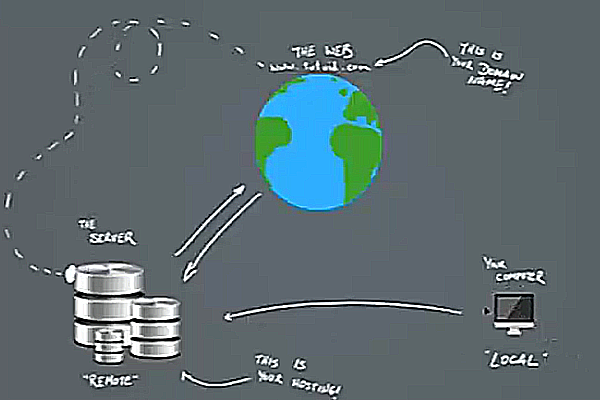 What is Web Hosting?
What is Web Hosting?
Web hosting refers to the service of providing storage space and access for websites on the internet. When you create a website, you need a place to store all the files, images, and other content that make up your site. Web hosting companies offer servers (specialized computers) that store these files and make them available for users to access over the internet.
Here are some key points to understand about web hosting:
- Server Storage: Web hosting companies allocate space on their servers to store all the files and data that make up your website. This includes HTML files, images, videos, databases, and other resources.
- Server Management: Web hosting providers handle the management and maintenance of the servers. This includes hardware and software updates, server security, backups, and ensuring the servers are running efficiently.
- Domain Name: In order for your website to be accessible on the internet, it needs a domain name (e.g., www.example.com). When you sign up for web hosting, you can associate your domain name with the hosting service, allowing users to access your website using the domain name.
- Bandwidth and Data Transfer: Web hosting plans usually come with a specific amount of bandwidth or data transfer. Bandwidth refers to the amount of data that can be transferred between your website and visitors. If your website has a lot of traffic or heavy content (like videos), you may need a hosting plan with higher bandwidth to ensure smooth access.
- Email and Database Support: Web hosting often includes features such as email hosting, allowing you to create and manage email accounts using your domain name (e.g., yourname@example.com). It may also support databases (e.g., MySQL), which are commonly used for storing and retrieving data for dynamic websites.
- Types of Hosting: There are different types of web hosting available, including shared hosting, virtual private servers (VPS), dedicated hosting, and cloud hosting. Each type offers different levels of resources, control, and scalability, allowing you to choose the option that suits your website’s needs.
Web hosting is an essential service for any website as it provides the infrastructure and technology required to make your site accessible to visitors worldwide.
Websites are hosted, or stored, on special computers called servers.
When Internet users want to view your website, all they need to do is type your website address or domain into their browser. Their computer will then connect to your server and your webpages will be delivered to them through the browser.
Most hosting companies require that you own your domain in order to host with them. If you do not have a domain, the hosting companies will help you purchase one.
Here are some features you should be expecting from your hosting provider:
 Email Accounts: As mentioned earlier, most hosting providers require users to have their own domain name. With a domain name (e.g. www.yourwebsite.com) and email account features provided by your hosting company, you can create domain email accounts (e.g. yourname@yourwebsite.com).
Email Accounts: As mentioned earlier, most hosting providers require users to have their own domain name. With a domain name (e.g. www.yourwebsite.com) and email account features provided by your hosting company, you can create domain email accounts (e.g. yourname@yourwebsite.com).

FTP Access: The use of FTP lets you upload files from your local computer to your web server. If you build your website using your own HTML files, you can transfer the files from your computer to the web server through FTP, allowing your website to be accessed through the Internet.

WordPress Support: WordPress is an online website creation tool. It is a powerful blogging and website content management system, which is a convenient way to create and manage website. WordPress powers over 75 Million websites on the Internet.

